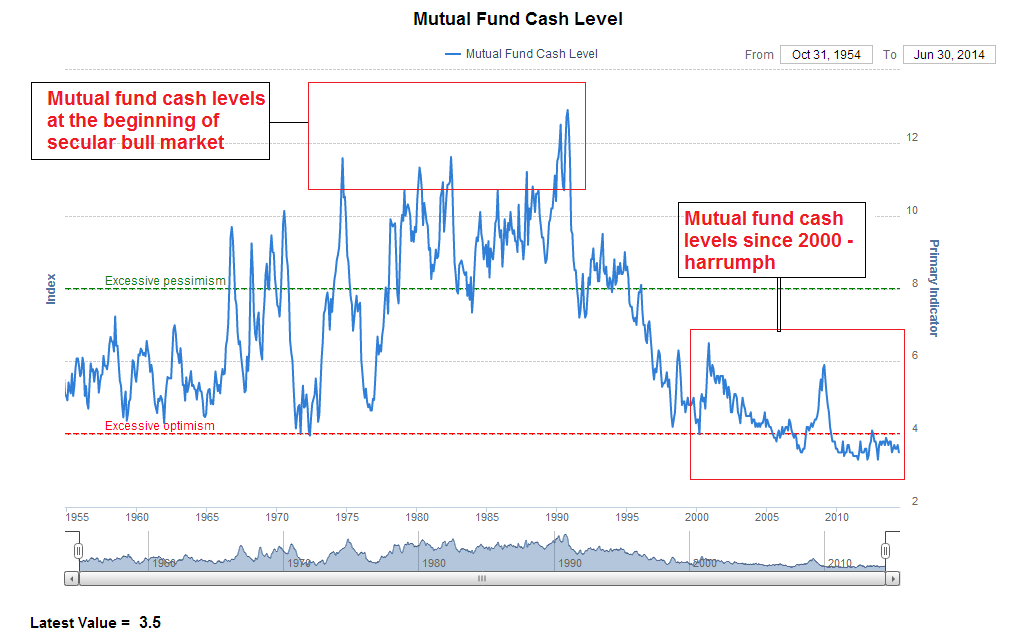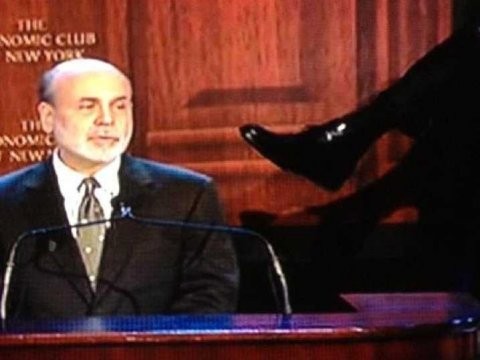2Nd UPDATE Bernanke Warns Of Risks In MoneyMarket Funds
Post on: 16 Июнь, 2015 No Comment

(Adds comments on capital standards, Volcker rule.)
By Kristina Peterson and Michael S. Derby
Of DOW JONES NEWSWIRES
STONE MOUNTAIN, Georgia -(Dow Jones)- More regulatory action may be needed to safeguard the money-market mutual-fund industry, Federal Reserve Chairman Ben Bernanke said in remarks prepared for a speech on Monday night, putting his weight behind other officials who want to toughen oversight of the $2.7 trillion industry.
In an address largely focused on scrutinizing murky corners of the financial system, the shadow banking system, Bernanke emphasized the need to establish regulations that protect the system as a whole from the risks that threatened it during the financial crisis.
The money-market mutual-fund industry remains prone to destabilizing panics even with new regulations already in place, Bernanke said in a speech at a conference hosted by the Federal Reserve Bank of Atlanta in Stone Mountain, Georgia. The risk of runs created by a combination of fixed net asset values, extremely risk-averse investors and the absence of explicit loss-absorption capacity remains a concern, Bernanke said in his remarks.
During the financial crisis, the Treasury Department and Federal Reserve headed off a rising panic by vowing to backstop all money funds after a large money fund with exposure to Lehman Brothers Holding Inc.s debt broke the buck, which happens when a funds net asset value falls below $1. The Securities and Exchange Commission imposed rules on the kinds of investments that money funds could hold in 2010 and SEC Chairman Mary Schapiro has advocated for additional measures, which Bernanke said Monday night may be necessary.
Additional steps to increase the resiliency of money-market funds are important for the overall stability of our financial system and warrant serious consideration, Bernanke said in his remarks.
Among the ideas under consideration are scrapping money funds fixed $1 net asset value and allowing it to float, like those of other mutual funds, or forcing funds to hold a capital buffer against the assets in their portfolios.
It isnt yet clear how widespread support is within the SEC for a plan to tighten regulations of the funds, since some agency officials have raised concerns over potential side effects of the proposals.
One reason why Bernanke sees some greater risk coming from money market funds is the fact the central bank no longer has in place some of the emergency lending tools it was able to use during the financial crisis. The Dodd-Frank financial reform bill restricted some of the Feds traditional emergency lending powers.
In response to an audience question, Bernanke said he wasnt too worried about a loss of emergency lending potency. The basic tool is still there, Bernanke said, explaining the bottom line here is although we can no longer lend to an individual firm, we have an alternative approach to that, and we are still able to lend to a class of borrowers, and provide liquidity.
Bernanke also said in his formal remarks the repo market, where dealers finance their bond-trading positions, remains a source of concern. He explained the pace of reform of that key market needs to be accelerated.
Although some progress has been made, securities dealers and clearing banks have yet to fully address their industrys shortfalls, he said. We continue to urge market participants to improve their risk-management practices, and, in particular, to ensure that tools are in place to address the risks that would be posed to the repo market by the default of a major firm, the chairman said.
Reducing the risk the repo market presents to the broader financial sector has been on the Feds plate for some time. This critical market allows financial-market participants to finance their positions by borrowing and lending securities to one another, in what are traditionally very short-dated transactions. The nature of the trading makes the sector subject to sharp volatility when participants lose confidence in one another, and this market played a key role in the failure of Lehman Brothers in 2008.
In February, a Fed-sponsored industry group failed to put in place reforms in a timely fashion, as the central bank had been requiring. The Federal Reserve Bank of New York, which has taken the lead in the matter, responded by saying it would take a greater direct involvement in overseeing the repo market, and that it may even move to restrict the type of collateral that can be used in the repo market.
Bernanke said the parts of the financial system that lie outside the traditional safety net, and were so instrumental in driving the financial crisis, remain a key area of concern for policymakers.
Panics and other stresses in shadow banking can spill over into traditional banking, the chairman said, and because of this, it remains critical that policy makers find ways to mitigate these risks.

I am encouraged that both regulators and the private sector have begun to take actions to prevent future panics and other disruptions in shadow banking, although he worried new rules could simply push risk taking farther afield, into new areas of unregulated activity.
Bernanke said that regulators recently took an important step toward preventing large institutions from growing so big that their failure could imperil the whole financial system. Earlier this month regulators finalized a process to spotlight some nonbank financial companies for tougher oversight. However, Bernanke said more work remains to be done and that regulators will continue to refine their criteria. For the firms that are ultimately deemed a potential threat, it will fall to the Federal Reserve to develop supervisory frameworks appropriate to each firms business model and risk profile, he said.
Bernanke also noted that the Fed is reviewing the methods used during the latest round of bank stress tests to see which elements worked well and the areas in which execution and communication can be improved.
The central bank leader also said in response to questions after his speech that higher capital standards, although they come with a small cost, are an important tool in making the financial system stronger. He also said while the imposition of the Volcker rule, which limits the speculative trading activities of banks, will cause some disadvantages for some firms, regulators are looking to find the right balance for how it will be imposed.
-By Kristina Peterson and Michael S. Derby, Dow Jones Newswires; 347-882-7215; kristina.peterson@dowjones.com
—Jon Hilsenrath, Victoria McGrane and Andrew Ackerman contributed to this article.
(END) Dow Jones Newswires
April 09, 2012 20:56 ET (00:56 GMT)














